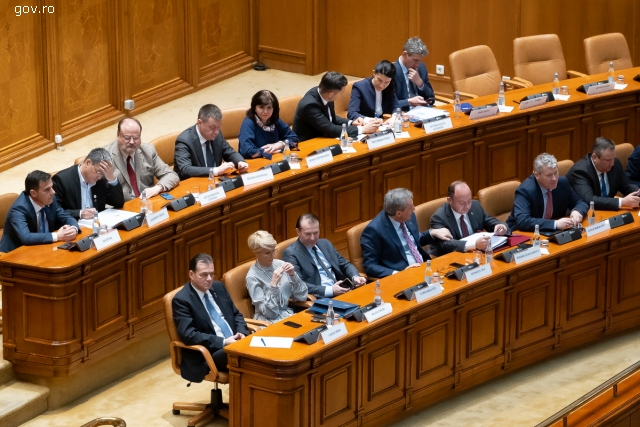Hearing of the second Orban Cabinet ministers
The ministers of the second Orban Cabinet are being heard in Parliament this week, with the investiture vote being scheduled for next Monday.

Ştefan Stoica, 17.02.2020, 01:50
The Liberal government, dismissed on February 5, returns to Romania’s Parliament with the same PM designate, Ludovic Orban, the leader of the National Liberal Party, with the same membership which was validated 3 months ago, and with a slightly adjusted governing program but with a totally different purpose, that of not being voted. It might seem unnatural but this is the only way to go to early elections, which are wanted by the parliamentary minority made up of the National Liberal Party and the Save Romania Union party as well as by the Romanian president Klaus Iohannis, a partner of the Liberals.
Labeled almost unanimously as rigid, the Romanian Constitution seems to have been drafted with the very purpose of providing debatable solutions to crisis situations, such as the current one. Thus, according to the Constitution, rejecting two consecutive proposals for government, in an interval of two months, before Parliament being dissolved by the president, is a prerequisite for calling early elections.
The idea of early elections became a reality after the first Orban government was sanctioned for having assumed responsibility for a draft law on the election of mayors in two rounds of voting. Ever since it took office, the first cabinet led by Ludovic Orban has been faced with a big problem: the lack of a majority in Parliament that could promote its bills. This is why the first Orban government resorted, on several occasions, to the procedure of assuming responsibility for certain bills, including for the draft budget law.
Considered main favorites in the voter surveys, after the victories scored in 2019 in the EP and presidential elections, the Liberals see the early elections as their chance to build a solid majority in Parliament and thus overcome the big obstacle in their way. The proposed ministers of the second Orban cabinet will be heard in Parliament in the first 3 days of this week, with the vote on the government membership and the governing program being scheduled for Monday, February 24. The PM designate Ludovic Orban however suspects the Social Democrats of having tried to put off the hearing process and the investiture vote.
Early elections might take place, according to PM Orban, between 15 and 30 June, in the same period with the local elections. The interim Social Democratic leader Marcel Ciolacu has recently said that the Social Democratic MPs will not vote for the second Orban cabinet. The Social Democrats’ discourse has changed of late. They now claim that they are ready for any scenario, including early elections. The party still feels the shock of last year’s defeats, but it has braced up after blocking the modification of the election law.
A countrywide leader in terms of the number of mayors, the Social Democratic Party is the first party to be favored by the election of mayors in one single round, and they count on the involvement of their own mayors, with a lot of influence at local level, who will be thus stimulated and will improve the score in the legislative elections, if they are held in the same period with the local elections. (translation by L. Simion)






























